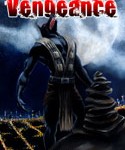End Games
People are always talking about the openings of stories. It’s an often quoted truism -especially by me!- that the first dozen lines of a story are critical. They are the unsolicited writer’s escape from the slush pile, or the path to a sometimes bewildered rejection. For the story that has been sold, a poor opening is a potential return to be To Be Read pile, from which there may be no return.
truism -especially by me!- that the first dozen lines of a story are critical. They are the unsolicited writer’s escape from the slush pile, or the path to a sometimes bewildered rejection. For the story that has been sold, a poor opening is a potential return to be To Be Read pile, from which there may be no return.
Perhaps as a reflection of that, half of the workshops that ran at alt.fiction were about beginnings, openings, settings, and establishing characters. It’s as though if you get the beginning right, the ending will take care of itself.
But if the beginning is important, how much more important is the ending? If the story works, it’s what the reader remembers. Think of Paul Atreides’ mother standing beside Chani and uttering the line, “history will call us wives,” or –no, better you go and read Alfred Bester’s “The Pi Man,” or John Varley’s “Air Raid,” or Gardner Dozois’ “Morning Child” — because I’d hate to ruin the ending.
Because to get to the ending, you have to go through the story. The ending isn’t something a writer just tags on the end; it flows organically out of the story, and should tie the threads together and leave the reader with a sense of completion. Context is everything, because the ending isn’t just about the ending. Maybe that’s why the topic is often ignored.
How the writer gets there, of course, is a journey that has as many routes as there are writers. That’s for another time.
we’ll talk more about this later.
